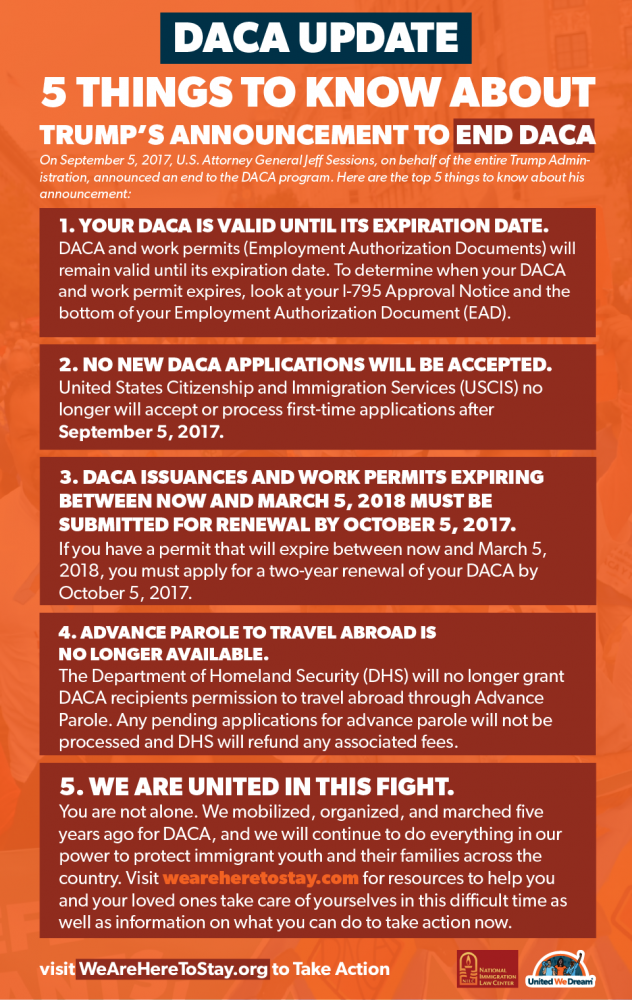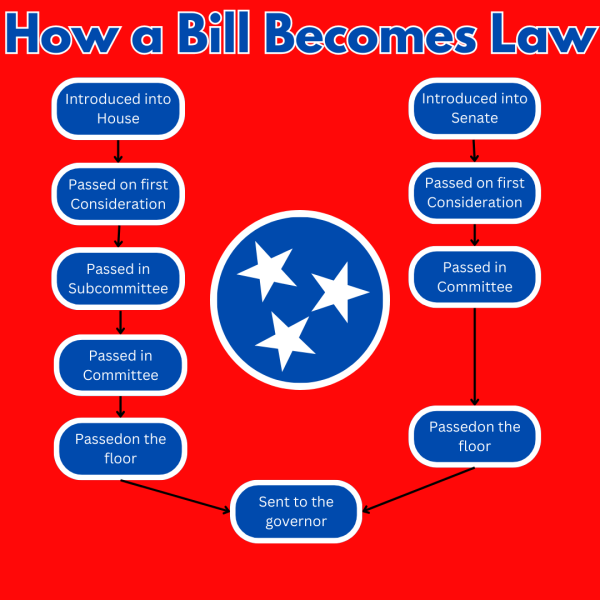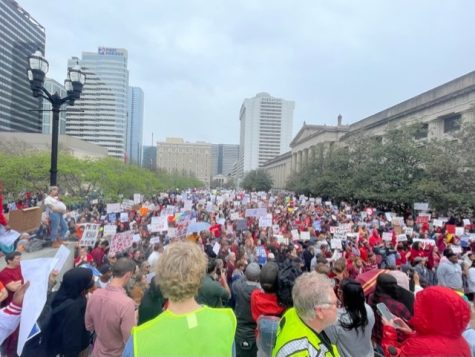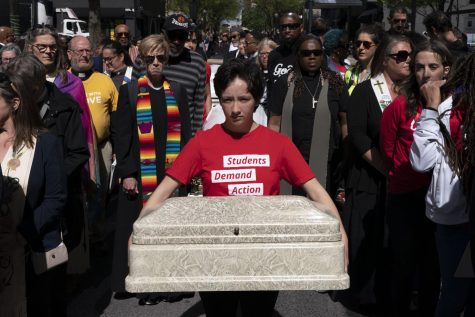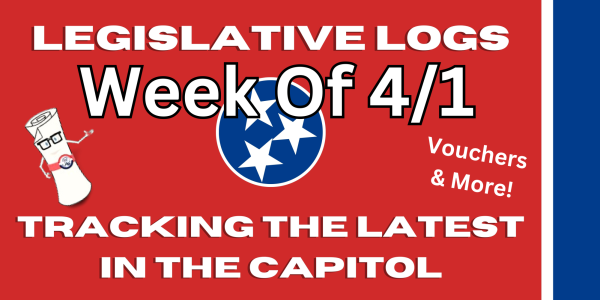Hillsboro Alumna and DACA recipient speaks out in light of the repeal.
I’m okay with the word dreamers. It is good, but why do I have to dream of my humanity? Is it valid? Do I have to keep dreaming that it will happen one day that you will see me as the equivalent of you? Why do I have to dream of being on the same level as you? I don’t want that. I want human rights, basic human rights. I want to be treated like you. I don’t want you to argue about my humanity
 On September 6, 2017, DACA (Deferred Action for Childhood Arrivals) was rescinded by President Donald Trump’s administration. President Trump ordered an end to the former President Obama’s program that protected young undocumented immigrants from deportation. He urged Congress to pass a replacement before he begins phasing out its protections in six months.
On September 6, 2017, DACA (Deferred Action for Childhood Arrivals) was rescinded by President Donald Trump’s administration. President Trump ordered an end to the former President Obama’s program that protected young undocumented immigrants from deportation. He urged Congress to pass a replacement before he begins phasing out its protections in six months.
The Hillsboro Globe spoke with Katherine Diaz, a Hillsboro Alumni who worked with TIRRC (TN Immigrant Refugee Rights) and JUMP (Jove’s Unidos por Un Mejor Presente) to organize a DACA rally in early August and now speaks out in news of DACA removal.
I want to change the world one school at a time.
— Katherine Diaz
Hillsboro Globe (HG): Are you registered for DACA?
KD: Yes, I am a DACA recipient.
HG: What does DACA mean to you?
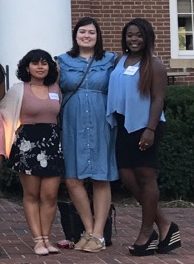
KD: DACA, to me, is a temporary solution. It means access to a driver’s license, a worker’s permit, and protection from deportation. It is like a little thin line of stability that you knew was never going to last forever, but it carries you into college, into a career, into feeling safer being in the U.S. and speaking out, and motivating people like me to speak out….There was a shield of security to an extent from deportation, and it was an access path into finally feeling you had all the rights that all your friends had around you.
HG: What does DACA allow you to do that you would not be able to do without being registered under this program?
When everyone else got their license at 16, I didn’t know if I was going to get mine. But I did because of DACA. DACA was definitely critical to opening a lot of doors. It gives you a social security number, so you can use that to apply for health insurance, to be a spot holder in a lot of applications. Things you couldn’t do without a social security number, now you could do. I could buy a house or my first car.
After the announcement was made by Attorney General, Jeff Sessions, protests broke out across the United States. From huge protests where supporters of all cultures chanted in front of the White House and the Justice Department to cities such as in Nashville where the protests were led by young, college age protestors determined to keep their rights to get and education.
Democrats and some Republicans, college presidents and immigration activists condemned the move by the White House administration as a coldhearted and shortsighted effort that was unfair to the young immigrants and could harm the economy.
Ms. Diaz discussed the protest that occurred in early August and the ultimatum signed by 10 states, including Tennessee’s Attorney General, that called for Trump to rescind DACA or else they would sue.
HG: What was your role when you were helping plan the protests while in Nashville?
KD: My main focus was with TIRRC and a group called JUMP (Jovenes Unidos por Un Mejor Presente) which translated is Youth United for Better Today. What we wanted was to get the attorney general from Tennessee off the lawsuit. We wanted Bill Haslam to come out publicly and say that he condemned the US Attorney General Jeff Session and call congress to action. We wanted him to urge Senators Corker and Alexander to support legislation that will support those who qualify for DACA.
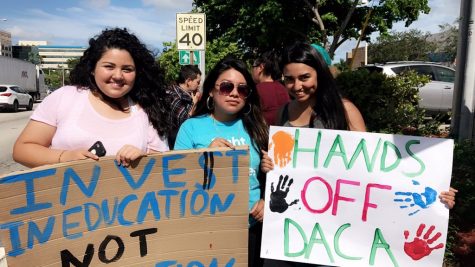
HG: What is an example of on of the protests you’ve been involved in?
KD: We planned actions, rallies across Nashville, including one of the biggest rallies during the Republican dinner that Mike Pence came to speak at. The music city building has glass walls, so we had over 200 people show up and walk around that building, and the people going into the Republican dinner saw people with DACA signs and heard the DACA story from people who spoke out.
That was successful action.
We had little kids write letters to the TN Attorney General. We had all hands on deck putting pressure on Herbert Slatery to withdraw from the DACA lawsuit.
We successfully did that in Tennessee.
HG: How do you think DACA will affect other people you met in Nashville and at Hillsboro?
KD: There are DACA students at Hillsboro right now. I don’t know who they are; I don’t know what their futures are looking like, but there have been and will always support these students.
There are people with careers who are undocumented. They’re no longer students. They now have careers as teachers, firemen and nurses.
I never came out to anyone at Hillsboro….Only the people that I felt comfortable, and like my friends I knew that were not going to treat me differently because they knew who I was. I don’t regret that because I wasn’t ready for that, but here, I am. I’m ready. I do care about my safety, but at the same time I want people to know what I’m talking about.
— Katherine Diaz
HG: How comfortable are students about sharing their documentation status?
KD: There are people around you, that you will never know, that are undocumented. When actions start to affect these people it will affect the economy of our communities but by that point it will be too late to do anything.
You will see a shift of communities.
HG: What I hear you saying is that the number of people that it will affect if larger than we imagine, can you explain?
KD: Without DACA, people will be threatened with deportation. When a family is deported, students are removed from classrooms, employees are removed from economies. Housing is left vacated without warning, there will be fewer employees who support our tourism industry right before summer.
Nashville will lose teachers, nurses, lawyers, doctors, police, construction experts and civil servants all who bilingual. But the loss will not be gradual, it will be large and immediate.
HG: What other contributions do you believe you make to our Nashville community besides an economic contribution?
KD: And I don’t want my value and other DACA youth, to be a value based solely to our economic contributions to this country, because there is so much more that we give to this country. We give so much and get back so little.
HG: What do you think of the executive order being rescinded?
KD: I feel angry and frustrated because the rhetoric used to bring it down was simply racist and xenophobic. It is the administration that we have in place today trying to promote this narrative of what undocumented people are, who we are.
HG: What is next for you is the DACA program does not get a replacement through legislation?
KD: Having DACA means that you at least have a voice to speak out on your issues. Things that are unlawful does not mean it is immoral or wrong.
DACA has been a successful program. It is a life changing program. With or without DACA, I will continue to fight for the 11 million undocumented individuals because there are people who will never have that voice.
